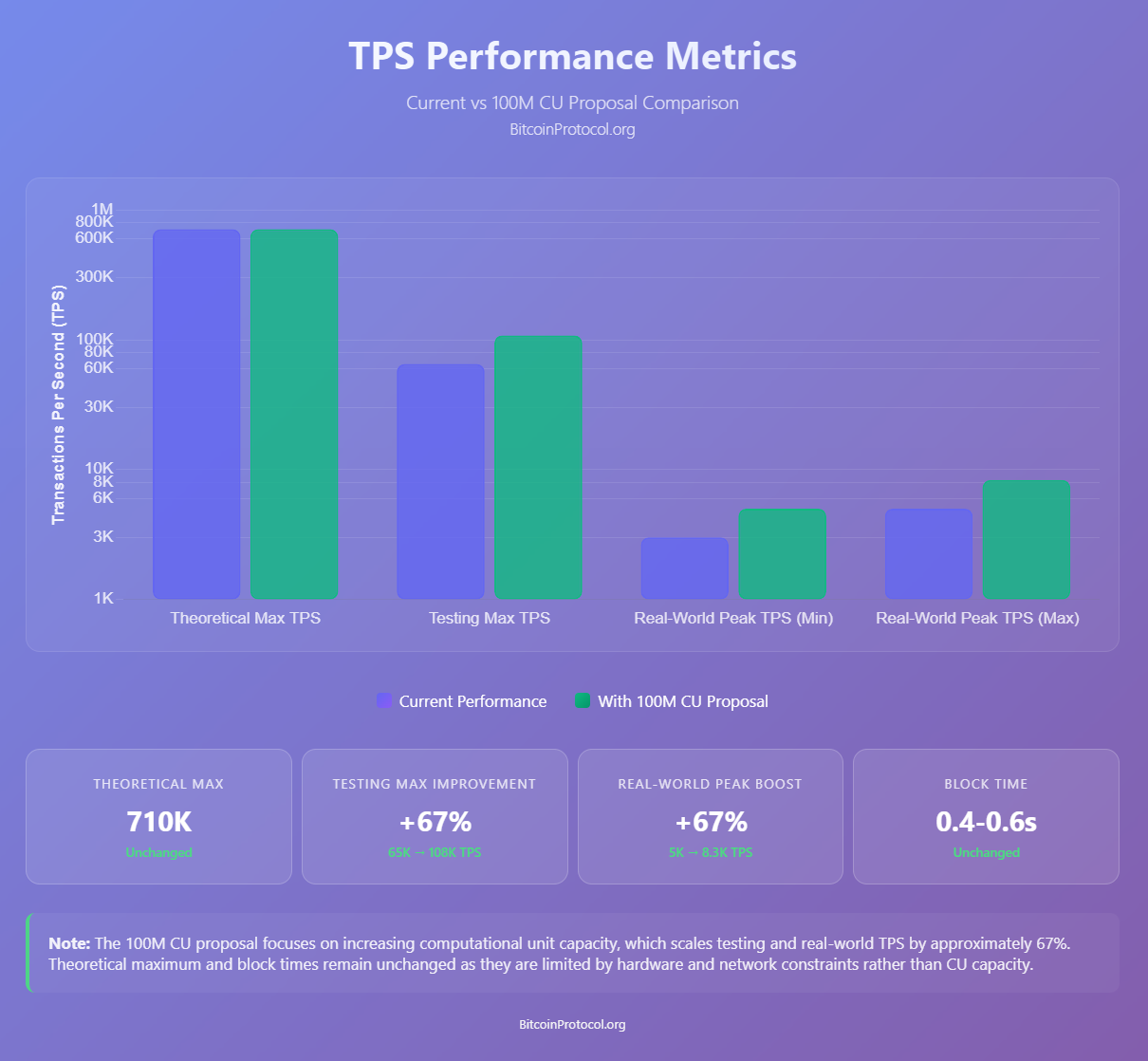Solana Proposes Network Upgrade to Achieve Over 108,000 Transactions Per Second

Solana’s core developers have introduced a new improvement proposal, SIMD-0286, designed to significantly enhance the network’s performance by increasing its per-block compute limit. The proposal, detailed on the Solana Foundation’s GitHub, suggests raising the compute unit ceiling from 60 million to 100 million per block.
This change aims to provide greater throughput for decentralized finance (DeFi) users and developers, addressing growing demands on the network’s capacity. If approved, the upgrade could push Solana’s real-world transaction processing capabilities to new heights, supporting its role as a leading blockchain for high-performance applications.
Enhanced Capacity for Scalability
The proposed increase in compute units per block is a direct response to the rising needs of Solana’s ecosystem, where applications like order-book decentralized exchanges (DEXs), miner extractable value (MEV) auctioneers, restaking protocols, NFT mints, and decentralized physical infrastructure networks (DePIN) are straining current limits. Each Solana block, processed every 400 milliseconds, has a compute limit that dictates how much computational work validators can handle. The current ceiling of 60 million compute units, established through the recent SIMD-0256 upgrade on July 23, allows Solana to process approximately 1,700 transactions per second during typical daytime traffic. However, developers have reported frequent “compute budget exceeded” errors, signaling the need for more capacity to accommodate complex programs.

By raising the limit to 100 million compute units, Solana anticipates a 67% boost in transaction throughput. During peak periods, the network currently handles between 3,000 and 5,000 transactions per second. With the proposed upgrade, this could increase to 5,000 to 8,300 transactions per second, offering substantial relief for congested periods. While Solana has a theoretical maximum of 710,000 transactions per second, this figure remains untested in real-world conditions. In controlled testing environments, the network has achieved up to 65,000 transactions per second, and the new compute limit could push this to approximately 108,000 transactions per second under similar conditions.
The upgrade requires validators to manage heavier computational loads, which could pose challenges for some operators. However, the Solana Foundation and its developers are confident that the network’s infrastructure can support the change. The proposal is currently under discussion and testing, with implementation planned for an upcoming software release. Once validators upgrade and reach consensus, the higher compute limit will activate automatically at a future epoch, ensuring a smooth transition.

